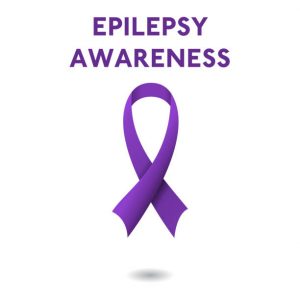Shekhar Singh: Navigating Epilepsy Treatments for Enhanced Well-Being
Epilepsy, a neurological disorder characterized by recurrent seizures, affects millions of individuals worldwide. The journey of managing epilepsy is not just about addressing the seizures themselves; it also involves finding effective treatments that promote overall well-being. In this blog post, we will explore the intricate relationship between epilepsy, treatment options, and the profound impact they have on an individual’s well-being.
The Spectrum of Epilepsy Treatments
Epilepsy treatments encompass a wide range of approaches aimed at reducing the frequency and severity of seizures. From medications to surgical interventions, the goal is not only seizure control but also the enhancement of an individual’s quality of life.
Medications
Antiepileptic drugs (AEDs) are often the first line of defence in managing epilepsy. These medications work by stabilizing abnormal electrical activity in the brain. Finding the right medication and dosage can significantly impact seizure frequency and contribute to improved well-being.
Lifestyle Modifications
Certain lifestyle factors, such as sleep patterns, stress management, and avoiding triggers, play a crucial role in epilepsy management. Incorporating healthy habits can lead to fewer seizures and a greater sense of control over one’s condition.
Ketogenic Diet
The ketogenic diet, a high-fat and low-carbohydrate eating plan, has shown promise in reducing seizures, particularly in drug-resistant epilepsy. Adhering to this diet can be challenging, but its potential benefits for seizure control and overall health are noteworthy.
Neurostimulation
Techniques like vagus nerve stimulation (VNS) and responsive neurostimulation (RNS) involve implanting devices that deliver electrical impulses to the brain. These methods can help regulate brain activity and reduce seizure frequency, ultimately contributing to improved well-being.
Surgical Interventions
In cases where seizures are not adequately controlled by medications, surgical options may be considered. Resective surgery involves removing the brain tissue responsible for generating seizures. While a major decision, successful surgery can lead to transformative improvements in quality of life.

The Ripple Effect on Well-Being
Epilepsy treatments extend beyond seizure management, influencing various dimensions of well-being:
Physical Health
Effective treatment can lead to fewer seizures, reducing physical stress on the body. Moreover, improving seizure control often results in enhanced energy levels, better sleep, and a higher capacity for physical activities.
Mental and Emotional Well-Being
Frequent seizures can take a toll on mental health, leading to anxiety, depression, and frustration. Successful treatment can alleviate these emotional challenges, promoting a greater sense of emotional equilibrium.
Social Interaction and Relationships
Individuals with epilepsy may face social stigma or isolation due to their condition. Improved seizure control can empower individuals to engage more fully in social activities, build relationships, and participate in events without fear of unexpected seizures.
Cognitive Function
Seizures, especially if frequent, can impact cognitive function. Effective treatment can lead to improved cognitive abilities, memory, and overall cognitive well-being.
Empowerment and Self-Confidence
Successful epilepsy management empowers individuals to regain a sense of control over their lives. As seizures become less disruptive, self-confidence and a sense of agency are likely to improve.
Four Strategies for Maximizing Well-Being
1. Open Communication
Effective communication with healthcare providers about treatment options, concerns, and progress is crucial for finding the right approach.
2. Holistic Approach
Incorporate holistic practices such as regular exercise, stress reduction techniques, and a balanced diet to complement medical treatments.
3. Support Networks
Building a support system of friends, family, and support groups can provide emotional assistance and valuable insights.
4. Self-Care Rituals
Prioritize self-care activities that promote relaxation, mindfulness, and emotional well-being.
Epilepsy treatments extend far beyond the realm of seizure management. They hold the potential to profoundly impact an individual’s physical health, emotional well-being, cognitive function, and overall quality of life. While the journey of finding the right treatment might involve challenges, setbacks, and adjustments, the pursuit of enhanced well-being remains at the heart of it all. With a comprehensive approach that combines medical interventions, lifestyle modifications, and emotional support, individuals living with epilepsy can pave the way toward a life marked by greater control, fulfilment, and a renewed sense of well-being.
Author: Shekhar Singh. Shekhar works as a doctoral researcher in the Neuro-Innovation PhD Programme. His research focuses on epilepsy in patients with CSTB mutation. Read more about Shekhar’s journey here.